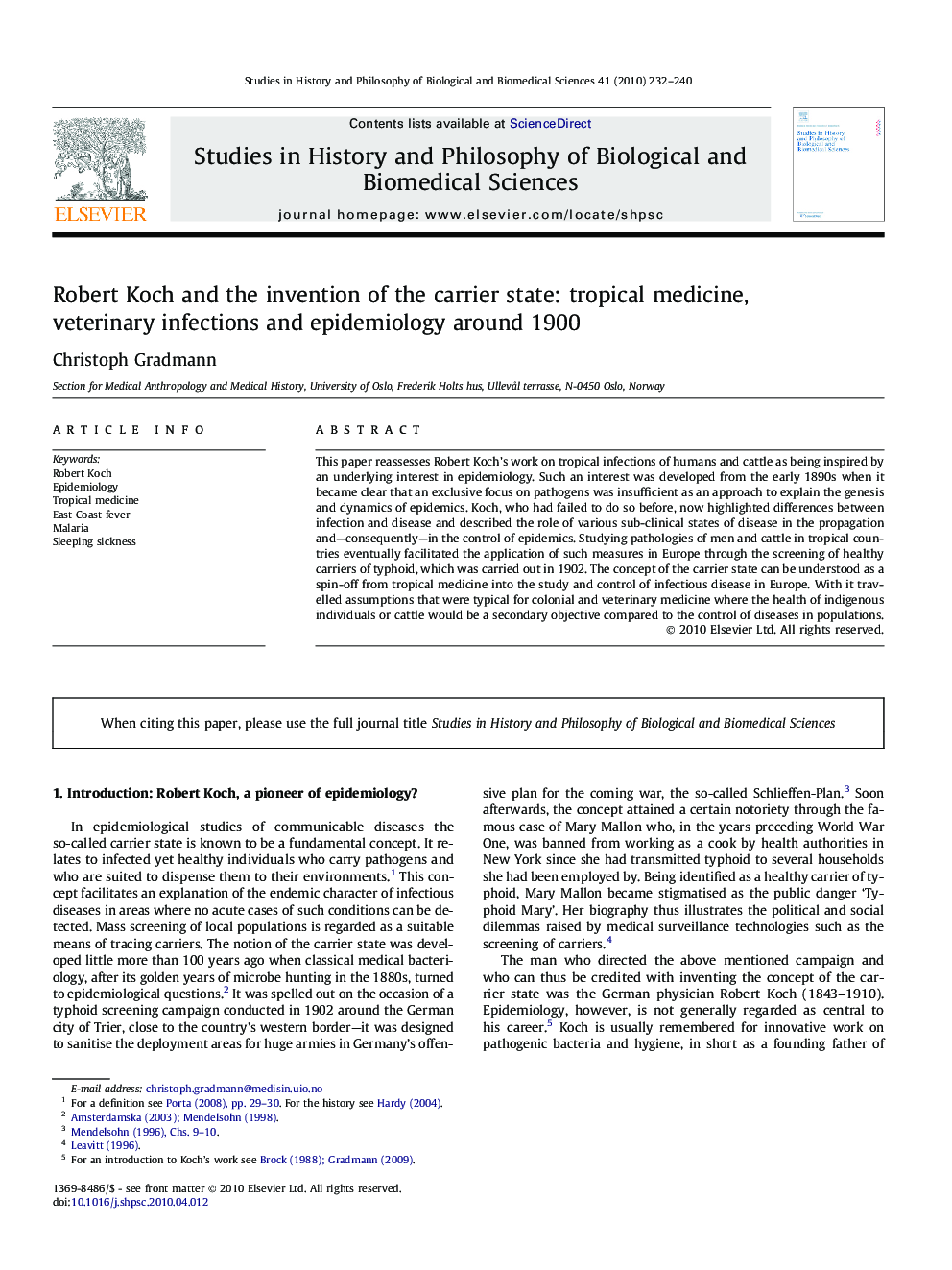| کد مقاله | کد نشریه | سال انتشار | مقاله انگلیسی | نسخه تمام متن |
|---|---|---|---|---|
| 1161933 | 1490537 | 2010 | 9 صفحه PDF | دانلود رایگان |

This paper reassesses Robert Koch’s work on tropical infections of humans and cattle as being inspired by an underlying interest in epidemiology. Such an interest was developed from the early 1890s when it became clear that an exclusive focus on pathogens was insufficient as an approach to explain the genesis and dynamics of epidemics. Koch, who had failed to do so before, now highlighted differences between infection and disease and described the role of various sub-clinical states of disease in the propagation and—consequently—in the control of epidemics. Studying pathologies of men and cattle in tropical countries eventually facilitated the application of such measures in Europe through the screening of healthy carriers of typhoid, which was carried out in 1902. The concept of the carrier state can be understood as a spin-off from tropical medicine into the study and control of infectious disease in Europe. With it travelled assumptions that were typical for colonial and veterinary medicine where the health of indigenous individuals or cattle would be a secondary objective compared to the control of diseases in populations.
Journal: Studies in History and Philosophy of Science Part C: Studies in History and Philosophy of Biological and Biomedical Sciences - Volume 41, Issue 3, September 2010, Pages 232–240